A movie that answers the question 'Can the new coronavirus be eradicated?'

Humans
Can we get rid of Covid-19 forever? --YouTube
On average, a few people infected with the new coronavirus will be infected with the new coronavirus.

Infected people also infect 2-3 people with the new coronavirus, so the number of infected people increases rapidly.

In addition, about 1 in 200 people infected with the new coronavirus have died.

By March 2021, more than 2.5 million people had died from COVID-19 due to this strong infectivity.

The new coronavirus infects 2-3 people, but if there is a virus that infects 4-6 people, the virus spreads faster than the new coronavirus.

Moreover, if 30% of people infected with the virus die, so many people will die.
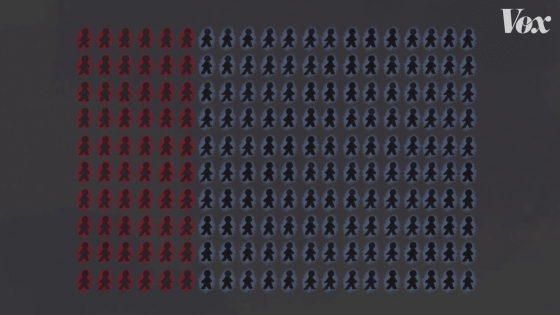
Such a terrifying virus actually existed. That is smallpox.

Smallpox is an infectious disease that has been rampant since ancient times, but the number has been reduced by the efforts of humankind ...

In 1980, he succeeded in eradicating smallpox from the earth.
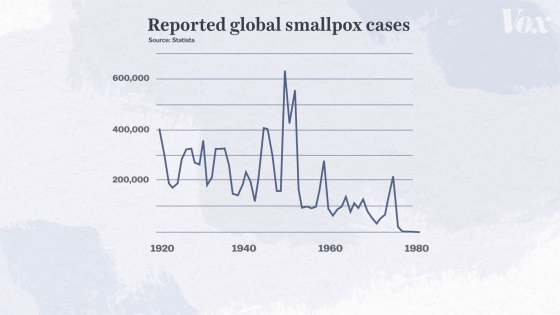
So can COVID-19 be eradicated in the same way as smallpox?

There are four main reasons why smallpox was eradicated. The first is 'vaccine development.'
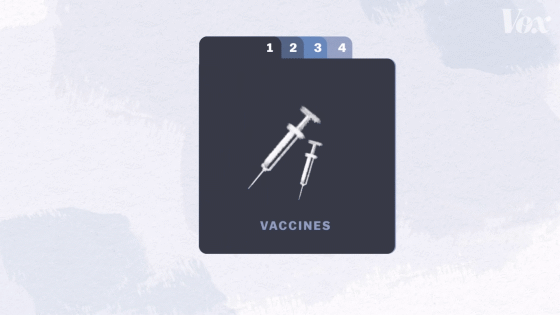
Known as the father of Kindai immunology,

This technique is

Vaccinated people do not infect others with the smallpox virus, which helps prevent the spread of smallpox.

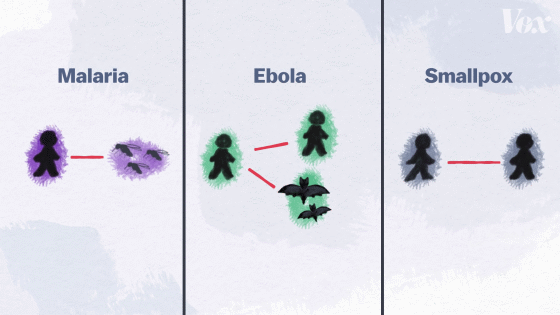
The combination of these two characteristics of 'vaccine development' and 'animals are not a source of infection' has reduced the number of patients suffering from smallpox.
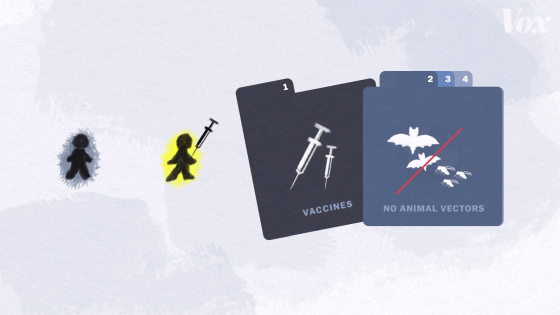
However, it is difficult to obtain the required amount of vaccine in populous and economically poor countries. Therefore, even in 1960, smallpox remained in Asia, Africa, and South America.
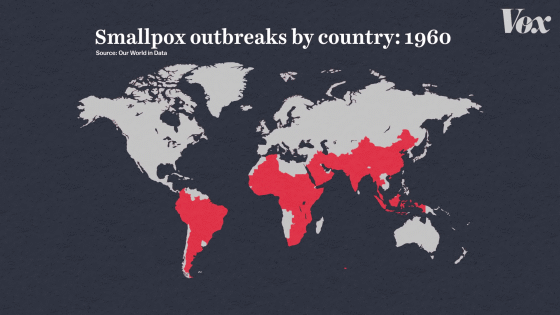
Therefore, the world has cooperated to eradicate smallpox. This is the third reason why we have succeeded in eradicating smallpox.


WHO set up a special budget to eradicate smallpox in 1967 and will carry out large-scale vaccinations in Asia, Africa and South America, which continue to suffer from smallpox.
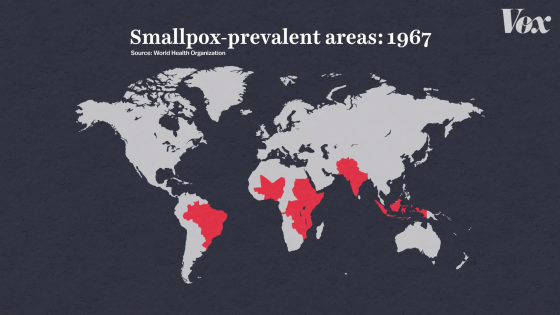
As a result, in 1971 only a few countries remained suffering from smallpox.
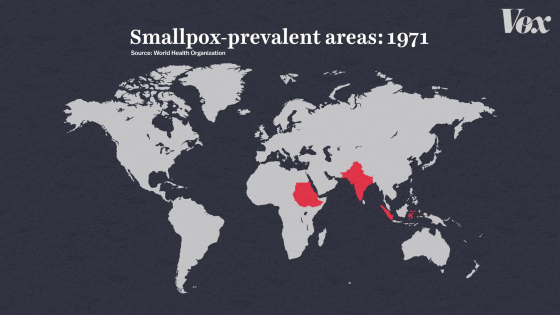
However, the WHO method of 'vaccinating all people in the world' at that time was difficult to realize in a densely populated country such as India. As a result, even in 1974, as many as 1,000 to 2,000 people died from smallpox in five months in India.
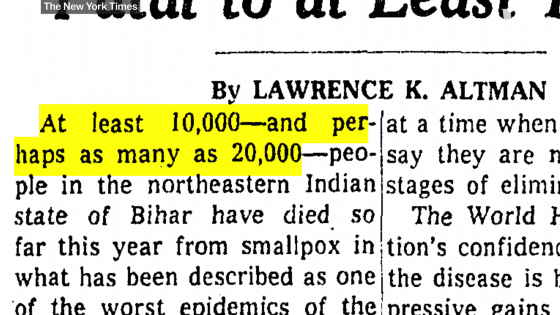
Therefore, WHO embarks on a new method of 'isolating people with smallpox.' This is the fourth reason why smallpox was eradicated.
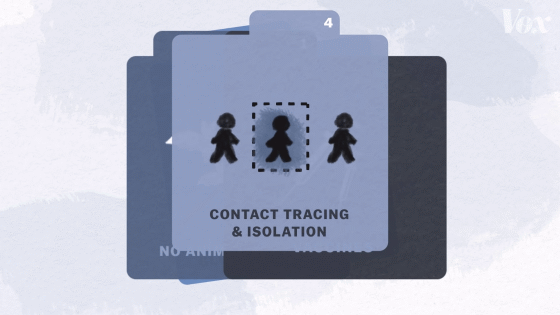
This technique isolates patients with smallpox and vaccinates those who come into contact with the patient.
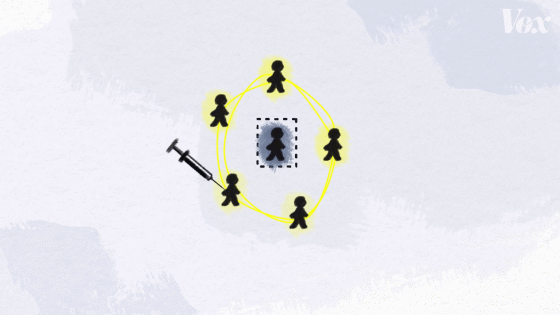
In addition, the vaccine is administered to 'people who have come into contact with patients'. This created a 'wall' between the smallpox virus and people. This technique is called '
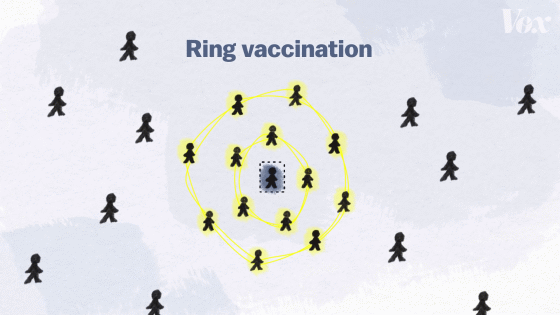
The effect of ring vaccination was remarkable, and the number of smallpox patients in India decreased sharply.
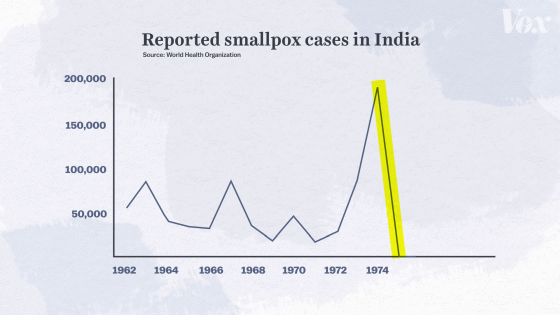
And on March 8, 1989, WHO declares the eradication of smallpox.
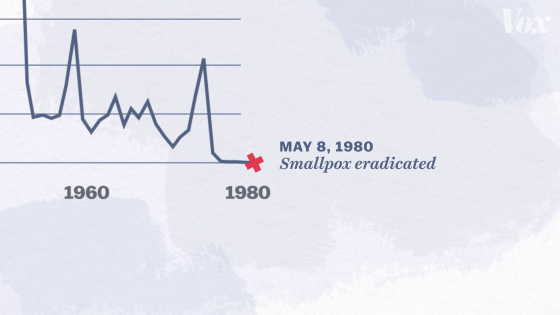
As mentioned above, the eradication of smallpox was successful for the four reasons of 'vaccine development,' 'animals do not become a source of infection,' 'international cooperation,' and 'patient tracking and isolation.' Let's see if these also apply to COVID-19.
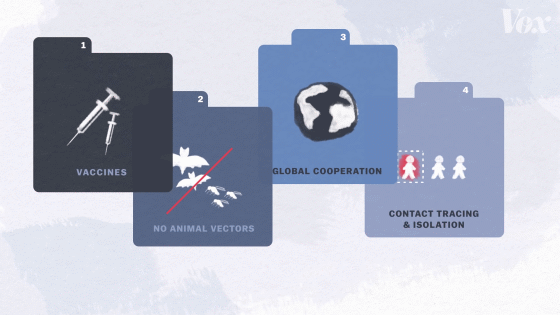
First, the first 'vaccine development' has already been completed. Thanks to technological advances, humankind has succeeded in

However, since the new coronavirus is
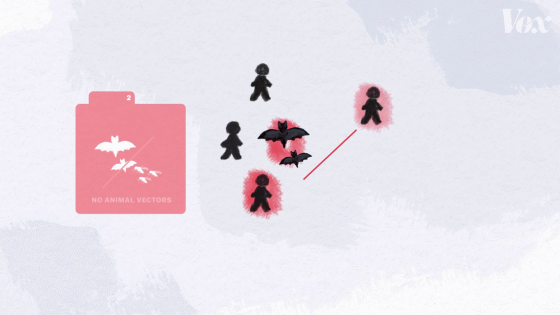
Smallpox virus is relatively easy to isolate because it is transmitted after the onset of smallpox symptoms such as fever and tumors.
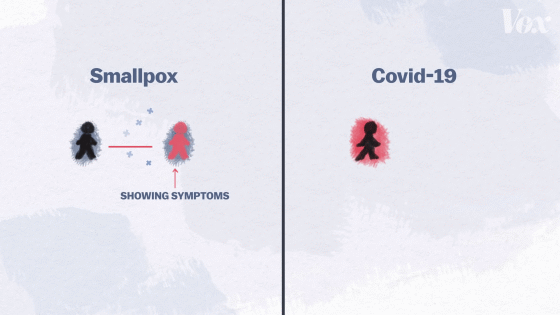
On the other hand, it is known that the new coronavirus is infected before the onset and many patients are asymptomatic.
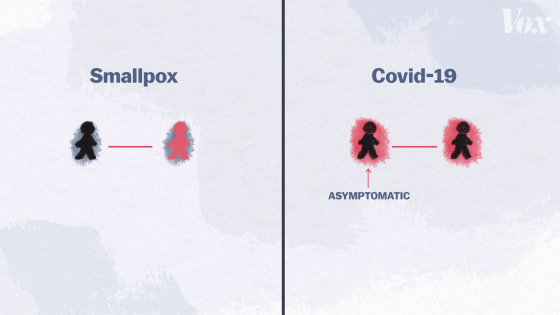
Therefore, 'patient tracking and quarantine' is also difficult with COVID-19.

In addition, 'international cooperation' is also in a difficult situation. Countries have restricted exports of masks and remedies, and in July 2020, then President Trump
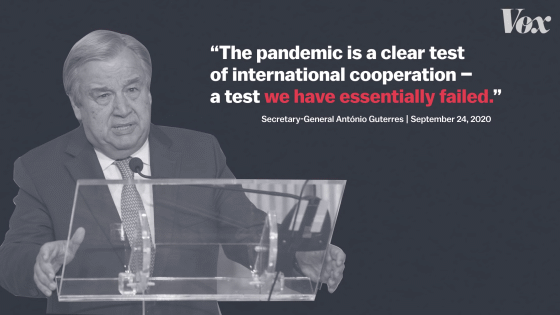
In addition, the acquisition of the new coronavirus has been delayed in economically poor countries.
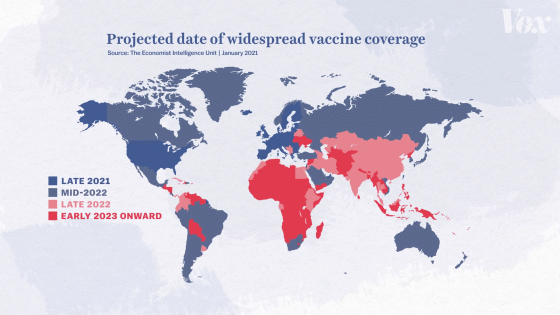
For these reasons, Vox states that 'international cooperation' has also failed.

In this way, in COVID-19, although 'vaccine development' was successful, it was eradicated because the three points of 'animals do not become a source of infection', 'international cooperation', and 'patient tracking and isolation' are different from smallpox. Vox concludes that is difficult.
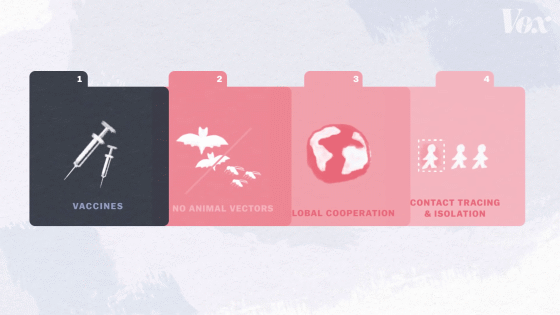
However, smallpox is the only infectious disease that human beings have been able to eradicate from the earth, and it is generally said that it cannot be eradicated.
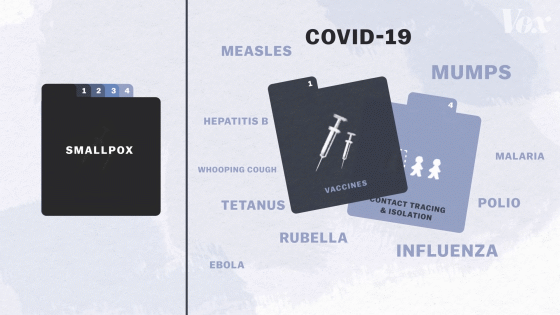
Therefore, Vox predicts that people who have been vaccinated with the new coronavirus vaccine will be treated as 'endemic', which requires regular vaccination, similar to influenza, by acquiring immunity. doing.

Related Posts:







